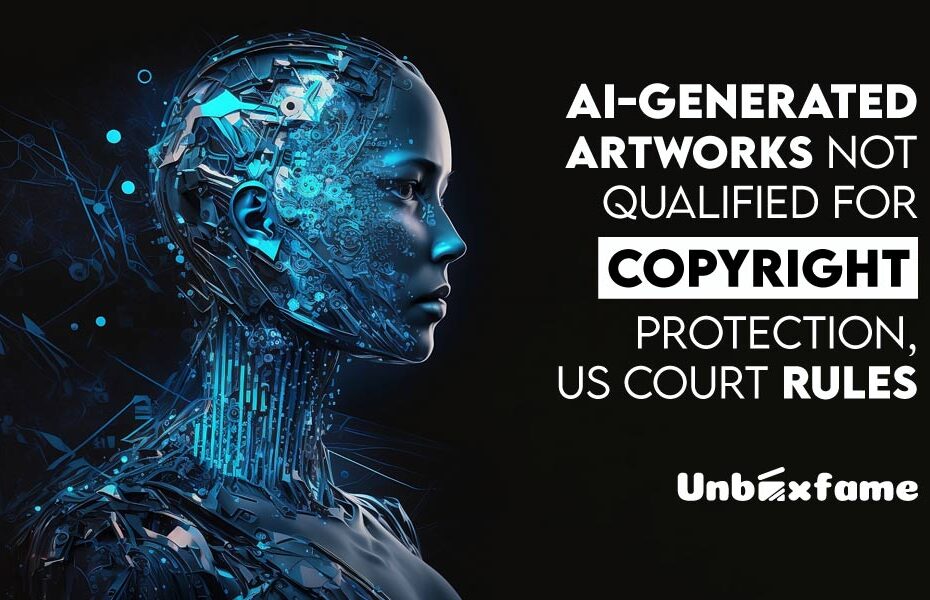In a remarkable injunction, the U.S. District Court in Washington, D.C. has hell bent on that artistic productions produced entirely by artificial intelligence (AI) are not qualified for copyright protection under U.S. law. The pronouncement, conveyed by the U.S. District Judge Beryl Howell, acknowledges the proposition that only ingenious works emerging from human author’s permits copyright entitlement.
The decision comes as a result of a case involving computer scientist Stephen Thaler and his AI system known as DABUS. Thaler sought copyright protection for artworks produced by DABUS, but his application was previously declined by the Copyright Office. This recent ruling supports the Copyright Office’s stance on the matter.
Thaler’s legal representative, Ryan Abbott, voiced disagreement with the court’s decision and announced intentions to challenge the verdict through an appeal. On the contrary, the Copyright Office expressed satisfaction with the court’s ruling, asserting its alignment with established copyright principles.
The case draws attention to the emerging complexities within the realm of generative AI and its intersection with intellectual property. The Copyright Office previously rejected an artist’s bid to secure copyright for artworks created with the assistance of the AI system Midjourney. The artist’s argument that the AI played a crucial role in the creative process did not sway the Copyright Office’s decision.
The ruling also casts a spotlight on ongoing lawsuits concerning the unauthorized use of copyrighted materials to train AI models. Judge Howell acknowledged the evolving landscape of AI’s influence on artistic endeavors and noted the inevitable complexity that such integration brings to copyright inquiries.
The lawsuit centered on Thaler’s attempt to secure copyright for an artwork titled “A Recent Entrance to Paradise,” which he attributed solely to his AI system. The Copyright Office’s refusal last year hinged on the requirement of human authorship for copyright eligibility. Thaler challenged this premise in federal court, contending that AI-generated works should also be eligible for copyright protection.
Judge Howell’s ruling aligned with the Copyright Office’s perspective, emphasizing that human authorship stands as a fundamental principle of copyright law, rooted in historical understanding spanning centuries.
Beyond its immediate implications, the decision holds broader consequences that extend across national borders and have the potential to influence global discussions surrounding copyright law and AI-generated content. Some anticipated global implications include:
1. Legal Precedent for Other Jurisdictions: While the ruling applies to U.S. law, its principles could serve as persuasive guidance for courts in other countries grappling with similar AI-generated content copyright online cases.
2. International Harmonization: The decision may contribute to international efforts aimed at harmonizing copyright laws, particularly in the face of the growing challenges posed by AI-generated content. Other countries might draw upon the U.S. ruling when shaping their own copyright regulations.
3. Defining Authorship and Creativity: Questions arising from the ruling could prompt other jurisdictions to reevaluate their definitions of authorship and creativity in the context of AI-generated content. This reevaluation may determine whether AI-generated works are eligible for copyright protection.
4. New Legal Frameworks: The ruling might motivate countries to revisit and update their copyright laws to address the unique challenges posed by AI-generated content. This could involve clarifying the roles of both AI systems and human creators in the creative process.
5. Ethical and Moral Considerations: The decision highlights ethical and moral dimensions associated with ownership and recognition of AI-generated content. Countries may need to consider societal values when making determinations about the legal status of such works.
6. Global Collaboration: In return for the judgment, countries could cooperate to initiate worldwide excellence and recommendations for AI-generated content copyright. This synergetic attempt could provide harmonious and pellucid rules for creators, users, and AI developers internationally.
As the impact of AI on creative processes continues to unfold, the U.S. court’s decision serves as a milestone that reverberates far beyond national borders. The convergence of technology and intellectual property law raises complex challenges that legal systems worldwide must navigate in the pursuit of balanced and equitable solutions.
In publishing and graphic design, Lorem ipsum is a placeholder text commonly used to demonstrate the visual form of a document or a typeface without relying on meaningful content.
